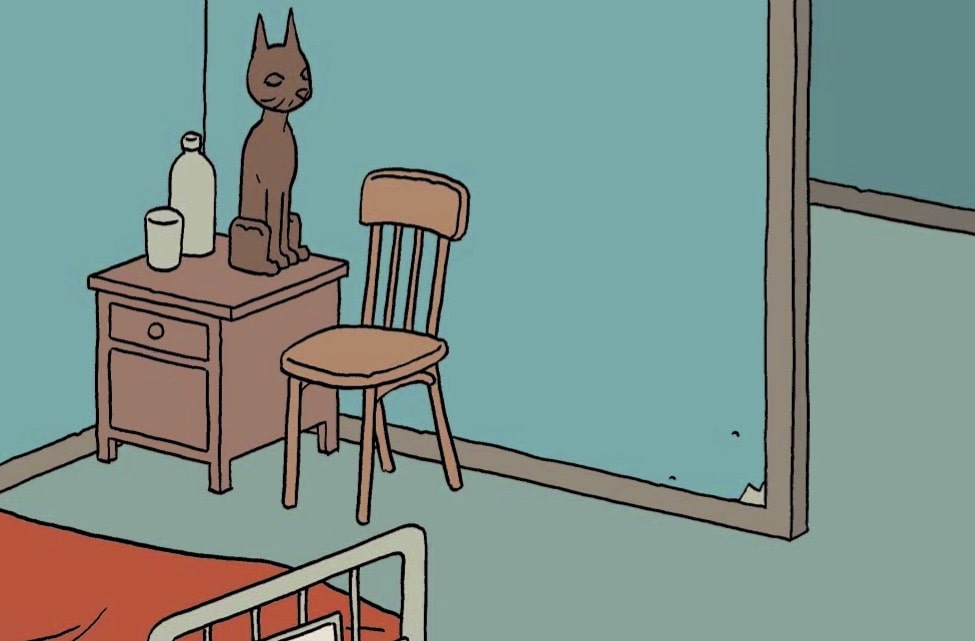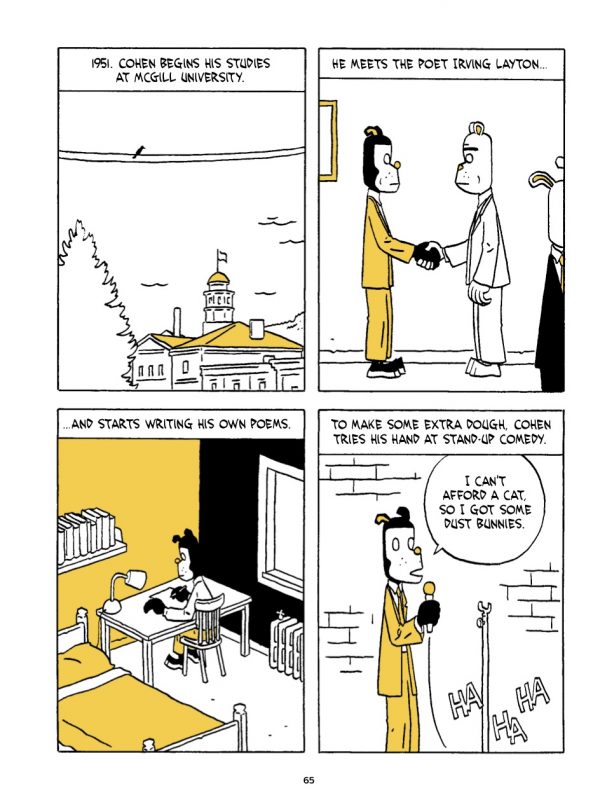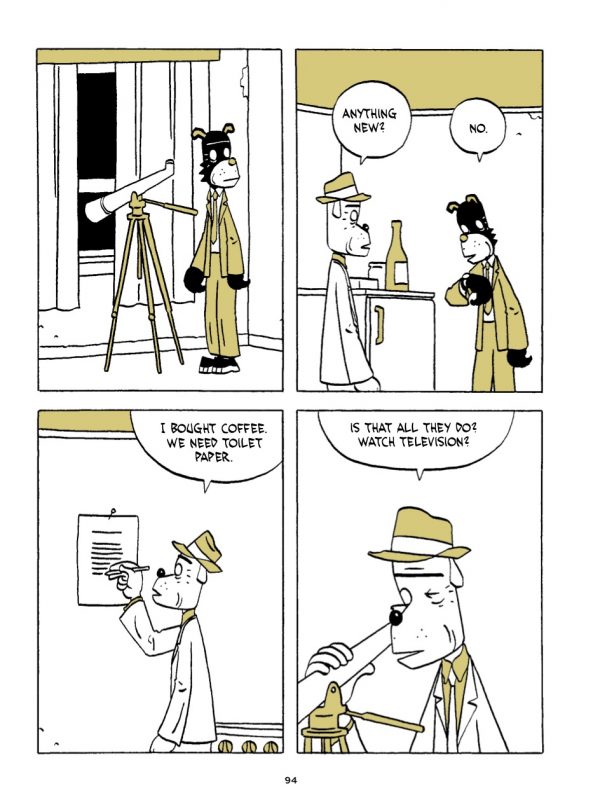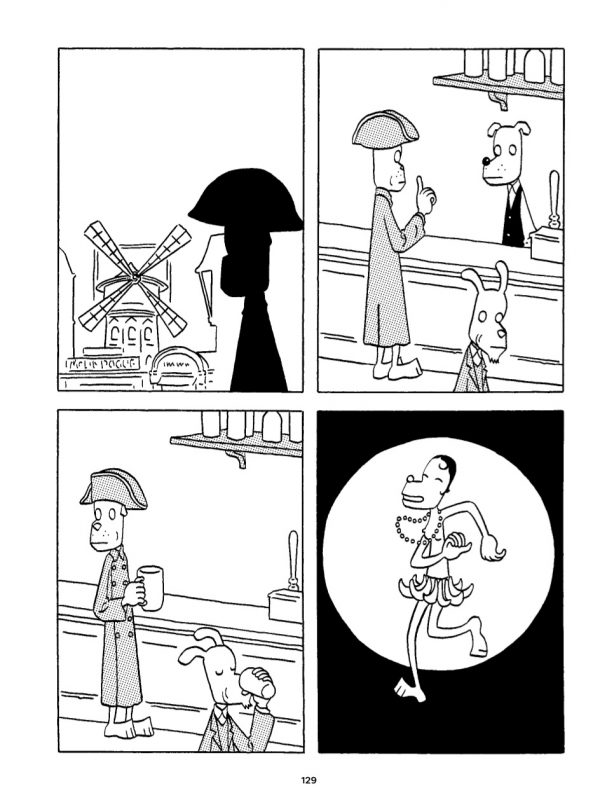O Josephine
By Jason
Fantagraphics Books
Norwegian cartoonist Jason, known for his spare dialogue and deadpan humor, brings together four shorter works for O Josephine, including some work that pushes the boundaries of what he has become renowned for. His laughs often come from a dark place and enjoyment of it typically benefits from a tendency for nihilistic eye-rolling on the part of the reader. That’s my standard response to many things, so O Josephine spoke to me as much as anything else by Jason that I’ve read.
“The Wicklow Way” is a low-key recounting of Jason’s journey on foot across Ireland taking the 81-mile trail of the same name. I don’t think I’ve ever read an autobiographical piece by Jason before, so for me, it was odd and amusing to see his now well-established style and delivery turned onto his own experience. He does a lot of talking to himself, greeting people going in the opposite direction, eating chicken salad sandwiches with a pint of Guinness, and not arriving places according to schedule. It’s something I could certainly relate to, the idea of travel as the act of passing through the landscape and encountering it on its own terms, not demanding to be entertained or distracted, but merely being there within wherever you are. It’s a nice meditation on being the moment.
“L. Cohen: A Life” was another piece that I didn’t have a lot of experience with, specifically I had never seen Jason do a biographical story, and I didn’t know much about his subject here, singer Leonard Cohen. I have to confess that knowing nothing about Cohen’s biography, things that happen within Jason’s rendering of it that might seem like jokes in a typical Jason story — Federico Garcia Lorca teaching Cohen flamenco guitar and the Heimlich Maneuver, for instance, or writing a book in 1956 called “Let’s Compare Cake Recipes” — are curious things that I decide to take seriously as Cohen facts as I read it. I don’t know much about Cohen, but I have a vision of Cohen, and in context of that vision, Jason’s bio of him is hilarious, and I enjoy more be deciding to not parse fact from fiction, so the idea that any detail could be either makes it even funnier to me. No, none of this can be true, I know he didn’t sing in U2. The whole thing is brilliant and dizzying and I prefer to just believe it’s all true, even the U2 thing.
“The Diamonds” is more like the Jason I am used to. It centers around a stakeout where the detectives are surveilling a couple that seems to only watch TV and not do much else. Jason takes the time to provide snippets of the lives of various players in the scenario, if not revealing a direct connection between their lives, then often a thematic connection between their actions. Other times, the juxtapositions lead to gulfs between them. There are plenty of laughs contained, and the humor is often presented in four-panel, one-page snippets that are deadpan with a skilled rhythm, and the whole thing is a melange of moments that Jason is leaving it to the reader to bring total cohesion to.
The final story, “O Josephine,” the source of the book’s title, depicts the relationship between Napoleon Bonaparte and Josephine in fast motion. Oh, I mean Josephine Baker, not Marie Josèphe Rose Tascher de La Pagerie, the first Empress of France, and Napoleon’s first wife. In Seth’s hands, they become swept away not only in the swirl of young romance but by a longer storm that takes them on a journey to bitterness and tragedy. In typical Jason fashion, almost every panel presents a singular moment along their timeline, and in this tale, there is more somberness than humor. But this is gloom as told through characters that look like floppy-eared dogs living out imagined melodramas attached to legendary historical figures who, when brought together under such circumstances, are just preposterous creatures.
Brought together, all the stories in O Josephine seem transitional, testing out some previously unexplored creative pathways and seeking future direction. That’s a good thing, feeling like Jason is purposefully seeking evolution and furthering what he has to offer. I don’t know that this is necessarily something for a casual Jason reader, but those who are already familiar with him and would like to dive deeper into his work will probably get a lot out of it and appreciate what it might herald. And “L. Cohen: A Life” is definitely worth the price of admission.












